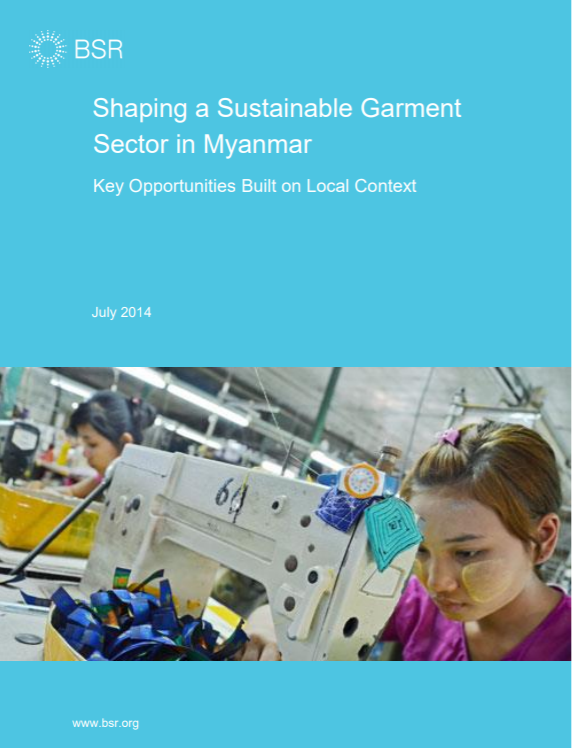This white paper finds that to address the root causes of challenges at both the systemic and factory level, businesses should develop context-specific, multistakeholder, and cooperative solutions. The garment sector can achieve this in Myanmar by proactively engaging on environmental, social, and governance (ESG) issues and working to form long-term partnerships that build capacity both within the industry and at the systemic level.
Additionally, the paper highlights four priorities for action in Myanmar: strengthening industrial relations, developing modern human resources practices, eradicating child labour, and securing land rights.

Shaping a Sustainable Garment Sector in Myanmar. Key Opportunities Built on Local Context
DOWNLOAD
